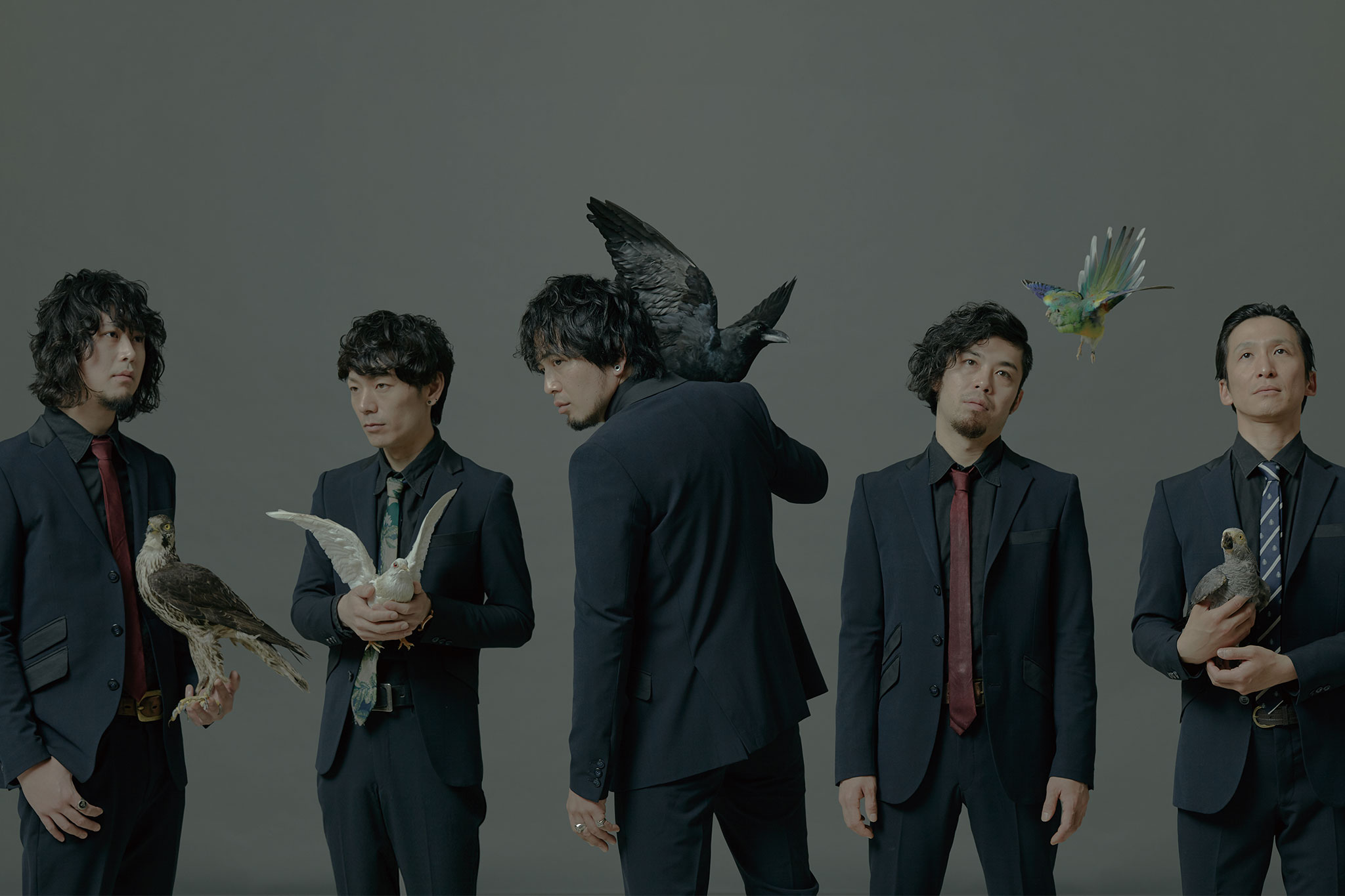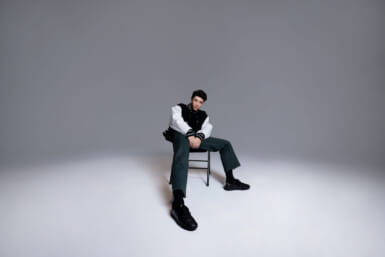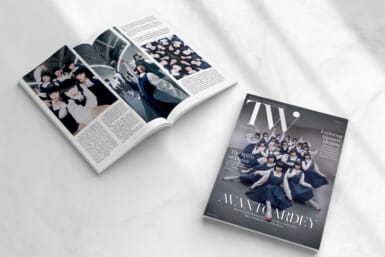Formed in 2003, Yellow Studs is a Tokyo-based rock band that incorporates various elements such as garage, rock and jazz into their impressive catalog of songs. TW recently caught up with lead singer Taichi Nomura and drummer Rei Takano to hear about the band’s origins and musical inspirations. We also dove deeper into the former’s mental health struggles too.
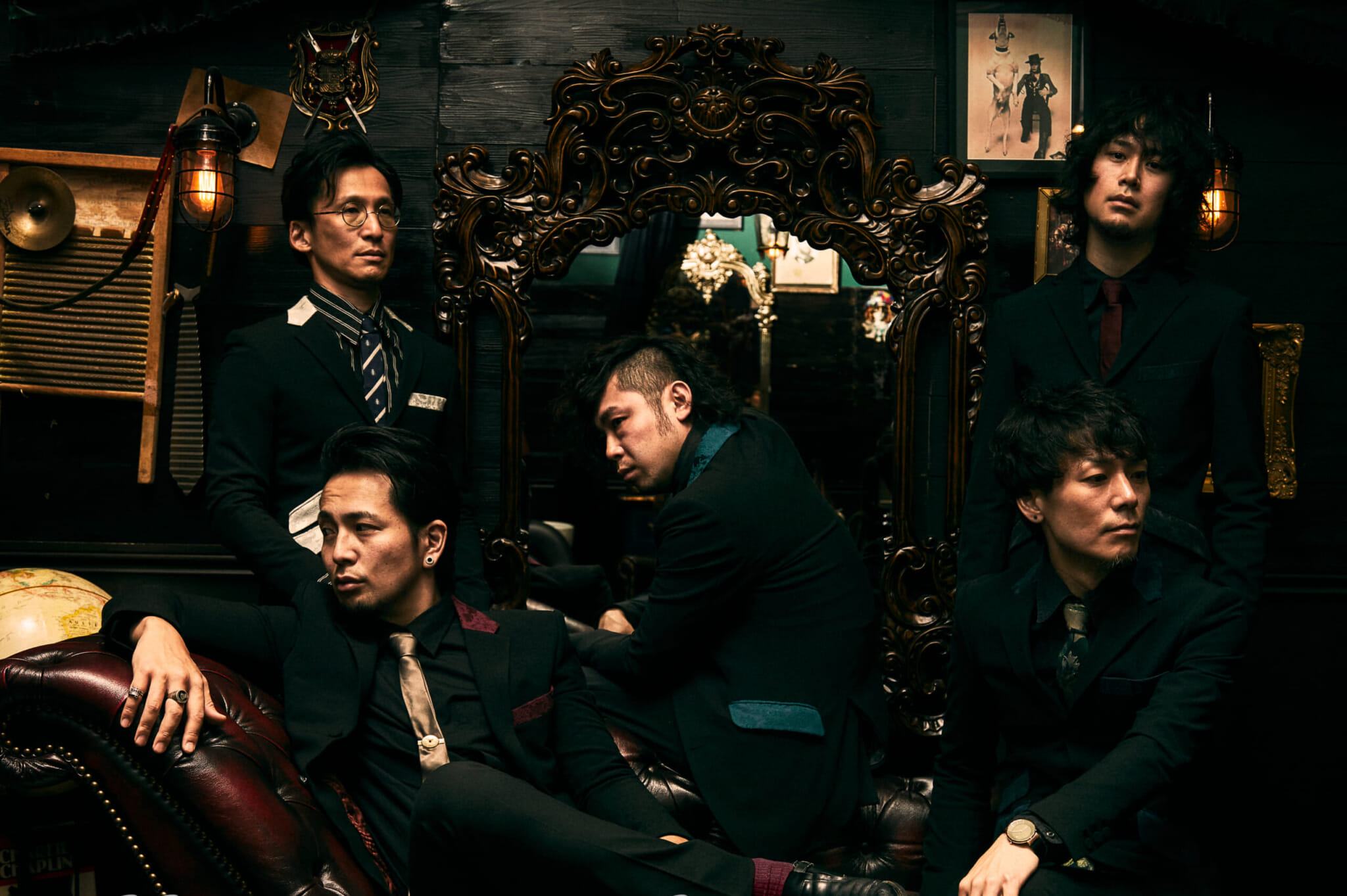
What is the origin behind the name Yellow Studs?
Nomura: Twenty years ago, a group of us who had nothing better to do, got together over dinner at a yakiniku restaurant and decided to form a band. Because all of us were Japanese, we went with the color yellow and, because we loved leather jackets with studded pockets at the time, we decided on Yellow Studs. It was really random but somehow it fit.
What does a day in your life look like?
Takano: Pretty much practicing.
Nomura: I’ve been into kickboxing recently, so there’s that. Other than kickboxing, I’ve been going camping or fishing.
How would you describe your music in one word or phrase?
Nomura: Real. I only write lyrics based on what we’ve experienced and felt, so I think the words are created based on the feelings of the members at that time. Our songs aren’t really based on unrealistic fantasies, so I imagine things that happened in real life in my own way.
What do you think the music industry in Japan is like, compared to the West?
Nomura: After making music for 20 years, we know that it’s hard for really good music to be accepted in Japan. I think Japanese people like music that is easy to understand, easy to remember and easy to listen to.
I went to a ramen shop earlier and Radiohead’s Amnesiac album was on the shelf. When I first heard that album, I was 20, and I thought, ‘What is this cool music?’ They’re not trying to fit into the mainstream, because it’s not catchy either. I think Japanese people have a preconceived notion or bias that anything that sells well overseas is good music. In that sense, I think people living abroad have a better sense of ability to judge whether that music is great or not. Japanese people probably need the music they like to have its own established brand and be highly acclaimed by the masses. I feel like music fans from abroad understand good music is good, regardless if it is well known or highly appreciated.
Most Japanese people think that, because the performers are the ones on stage, they are more important than the audience. We are still human even though we’re the ones performing on stage. No one is better than the other, there is no hierarchy. Where would we be without our audience, our listeners?
How was the MTM live show?
Nomura: When we performed at MTM for the first time, the audience was a completely different world from that of Japanese culture. I’m Japanese born and raised, and I’ve only performed in Taiwan and Japan. I think that Japanese people are often embarrassed to express themselves, so they are very quiet. It felt great performing at MTM, everyone was swaying to the music, and I really felt good performing. After the show, everyone was saying how great it was. It reminded me of when we performed in Okinawa. When we used to do live shows in Okinawa, a lot of American soldiers from the base would come to watch us.
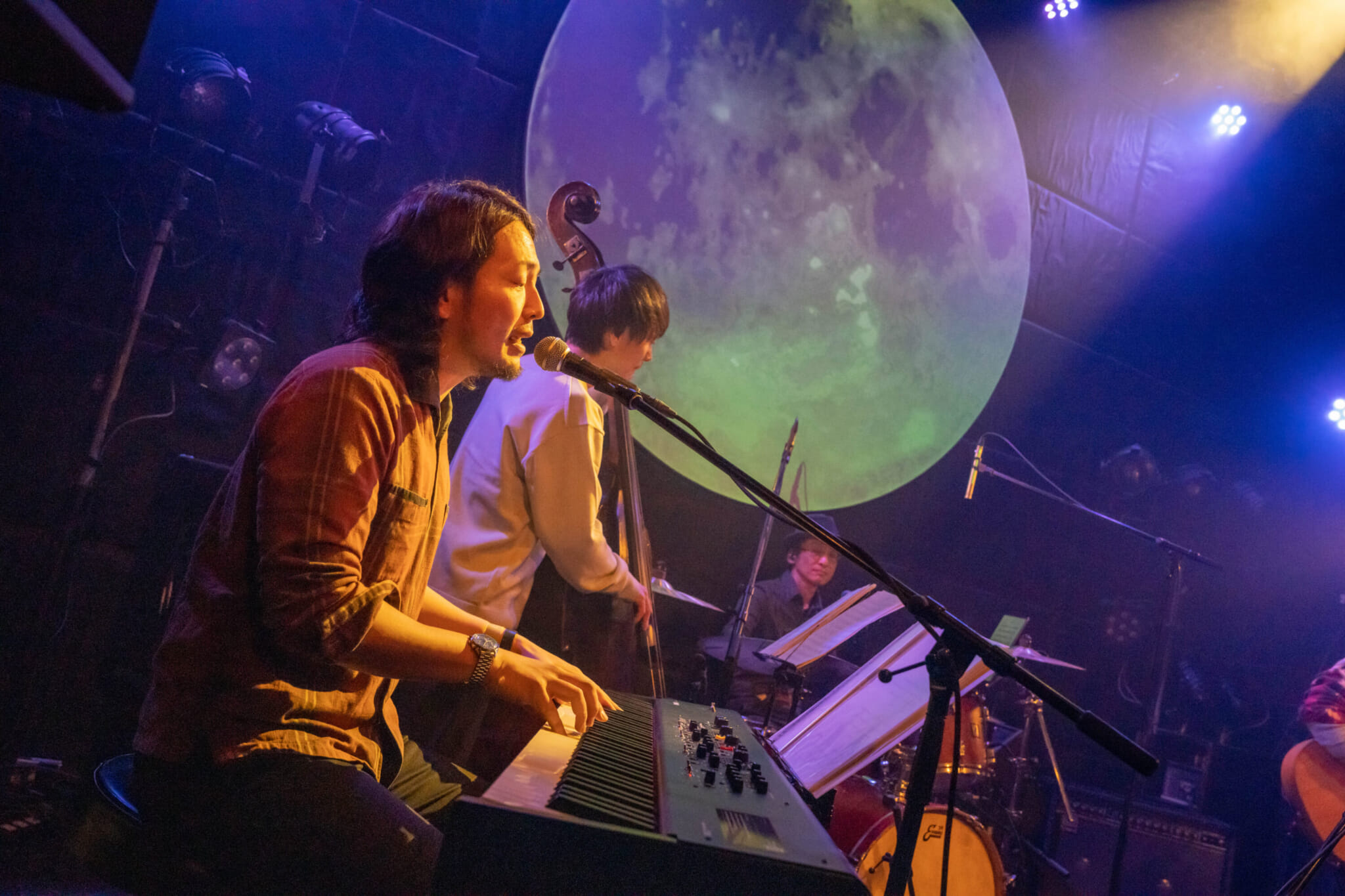
Photo by David McGinty, courtesy of More Than Music.
Do you have a fun anecdote from a live performance?
Takano: It was quite fun when I performed at the Liquid Room with the violin before I properly joined Yellow Studs. I brought a string quartet with me. It was pretty fun to present an arrangement of a Yellow Studs song with two violins, a viola and a cello in front of everyone.
Nomura: I get nervous easily, so basically, I don’t really enjoy performing live. The most fun part is coming together after the show. I think it’s fun when I’m playing a simple song, because there will be no mistakes and I’m comfortable.
Takano: You’re more nervous when you play fast and difficult songs, right?
Nomura: The time I was the most nervous was when I played at Fuji Rock, and many people got really excited there. I was so nervous that I wasn’t having any fun.
Takano: You were nervous at that time?
Nomura: Yes, I was.
Takano: When I was watching the video, it looked like you were performing with a lot of composure.
Nomura: Yes, I get that often, but in reality, I’m not relaxed at all. The other night at MTM, I was relaxed, so it was fun. We stopped playing music two years ago, and we were working too hard until then, so it’s more fun when you don’t push or work yourself too hard.
What happened to the band during your hiatus two years ago?
Nomura: It wasn’t that I didn’t like music anymore, but that I was in a life-or-death situation, and there was no fun to be had, and I couldn’t afford to do well. It was really a question of how I was going to live tomorrow.
We went on hiatus after Covid-19 started. I think people around me thought the band was taking a break because of the pandemic, but in fact it was because of my illness. I was diagnosed with a multiple personality disorder, dissociative identity disorder. I couldn’t walk normally for about three months. I thought I was going to be like that for the rest of my life. So, I just decided to spend a lot of money and have fun because I had nothing else to lose.
While I was resting at home, I had nothing else to do, so I decided to listen to music again. I didn’t listen to music other than our band, but for the first time in 10 years, I signed up for Apple Music and listened to Tones and I. Her music inspired me and I fell in love with music again.

“Draft” – 2021 album artwork
Has the band’s sound changed throughout the years?
Nomura: We definitely sound cooler than before. I think that the band’s level has improved with the addition of Takano on drums. He is really good.
Takano: Thanks.
Nomura: We are all better than we used to be. The more difficult something is, the more we want to play it. We always want to challenge ourselves.
If you weren’t doing music, what would you be doing?
Nomura: I definitely think I would have been into some fishy business. Plus, actually being a fisherman. I don’t think I would have been able to get a job the mainstream Japanese job-hunting way.
Takano: Me either. I probably would have been an auto mechanic. I love motorcycles and cars. My parents didn’t have a car when I was growing up, so I had a huge yearning for a car. I had a huge complex about why other people had cars and we didn’t.
Dream guest artist, dead or alive, to have a meal and drink with?
Takano: Chad, the drummer from Red Hot Chili Peppers. Or Wayne Shorter, the American saxophonist.
Nomura: Maybe Björk or Fiona Apple. For a Japanese artist, I would choose Ua.
What projects do you have coming up?
Nomura: There will be two albums out this year. A jazz cover album and a new album. So keep an eye out for them.
Check out Yellow Studs and their upcoming music on Instagram.
Tokyo Weekender and More Than Music collaborate in a bimonthly interview series with the diverse musical performers on the Tokyo music scene.
Updated On April 7, 2023

